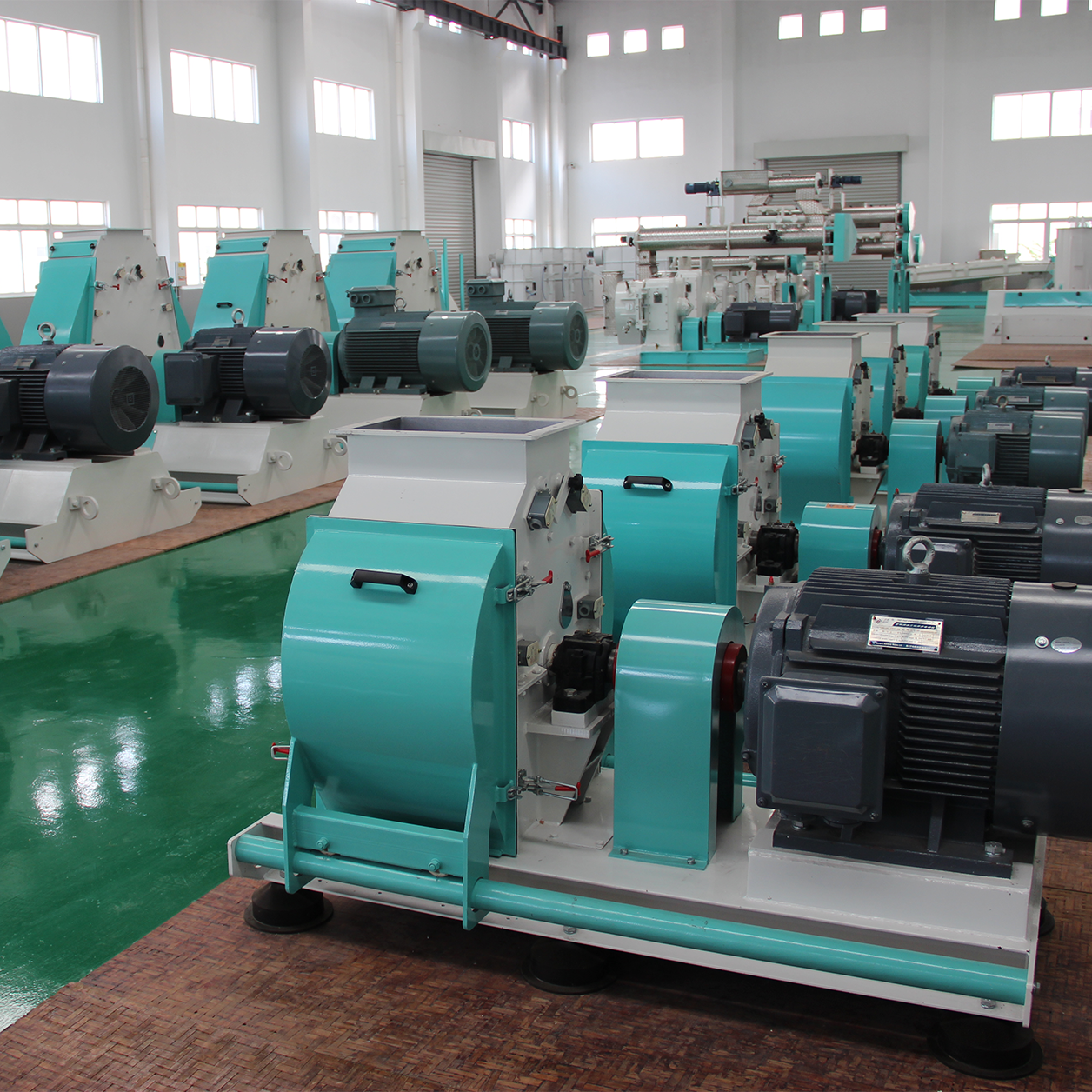Hammer mills are multi-purpose grinding machines used in most industries to crush, grind, and pulverize materials into powder and small particles. These machines are important in both agricultural and industrial processing. The top 10 best uses of hammer mills in industrial and agricultural practices are as follows:
Feed processing, improving nutritional conversion
In the agricultural sector, feed processing is an important application for hammer mills. It reduces breeding costs and improves breeding efficiency. Whether it is grain feed raw materials, such as corn and wheat, or fibrous materials such as straw and vines, hammer mills can crush them into a particle size that is suitable for livestock to eat and digest, providing a solid foundation for the efficient development of the breeding industry.
Fertilizer processing
Crushing agricultural raw materials, hammer mills are used in the production of organic fertilizers and compound fertilizers, where raw materials such as fertilizers, compost, and crop residues that need to be granulated are crushed into uniform particles.
Biomass Energy Preparation, Promoting Green Development
In the industrial sector, hammermill wood shredders are widely used in wood processing. They can not only shred waste wood, but also process the wooden parts of construction waste. The shredded particles can be used to make wood chip boards, wood-plastic composites, and other new building materials.
Grain milling, ensuring food processing quality
In the food processing industry, hammer mills are used for grain milling. Their sturdy hammer assemblies quickly break down grains, producing flour with a finer texture that is easier for the human body to digest. By adjusting components such as the screen, flour of varying coarseness can be produced to meet the needs of food processing and other applications, ensuring the quality and efficiency of food processing.
Ore crushing, driving mining production
Hammer crushers are commonly used in mining to crush various medium-hard and weakly abrasive ores, such as coal, salt, chalk, and gypsum, with a compressive strength not exceeding 100 MPa. In the coal crushing stage following coal mining, hammer crushers can break large pieces of coal into suitable particle sizes, facilitating subsequent transportation, storage, and combustion.
Agricultural waste treatment promotes ecological agriculture
Agricultural production generates a large amount of waste, such as straw and corn cobs. Hammer mills can grind these wastes into powder, which can be further processed into organic fertilizers. On the one hand, this reduces the pollution caused by agricultural waste to the environment. On the other hand, it provides the soil with rich nutrients, improves soil fertility, promotes the development of ecological agriculture, and achieves a win-win situation of recycling agricultural resources and protecting the ecological environment.
Chemical raw material crushing, meeting diverse needs
In the chemical industry, hammer mills can be used to crush various chemical raw materials such as calcium carbonate and sulfur. For some flammable and explosive chemical raw materials, explosion-proof hammer mills can be used in conjunction with a nitrogen protection system to ensure safety during the production process.
Pharmaceutical Industry
The hammer mill can be used to crush a variety of Chinese herbal medicines. It uses high-speed shearing and hammering to crush dry, brittle Chinese herbal medicines into powder. The equipment is equipped with a dust collection device, which can effectively prevent powder contamination. It also features low temperature, low noise, and high efficiency, enabling it to retain the active ingredients of Chinese herbal medicines to the greatest extent possible.
Preparation of building materials, optimization of material properties
In terms of building material preparation, hammer crushers can crush materials for use in the production of building materials such as cement and bricks. For example, in cement production, crushing raw materials such as limestone to the appropriate particle size helps improve the quality and performance of the cement.
Food processing raw material handling, ensuring food safety
In the food processing industry, hammer mills can be used to process a variety of raw materials. For example, in the production of condiments, spices and other raw materials are crushed to ensure uniform particle size, resulting in more intense flavors and a smoother texture. In the nut processing industry, the degree of crushing can be controlled to produce products such as nut fragments of different sizes.
Conclusion
With its wide applicability and outstanding performance, the hammer mill plays an irreplaceable role in many fields of agriculture and industry, providing a powerful driving force for the efficient development and innovative progress of various industries. In the future, with the continuous innovation of technology, it will continue to expand its application boundaries and create greater value.
We supply good quality hammer mills to different industries at Shanghai Yuanyuda International Trade Co., Ltd. To get quality machinery solutions that will meet your needs, contact us!
Table of Contents
- Feed processing, improving nutritional conversion
- Fertilizer processing
- Biomass Energy Preparation, Promoting Green Development
- Grain milling, ensuring food processing quality
- Ore crushing, driving mining production
- Agricultural waste treatment promotes ecological agriculture
- Chemical raw material crushing, meeting diverse needs
- Pharmaceutical Industry
- Preparation of building materials, optimization of material properties
- Food processing raw material handling, ensuring food safety
- Conclusion

 EN
EN















